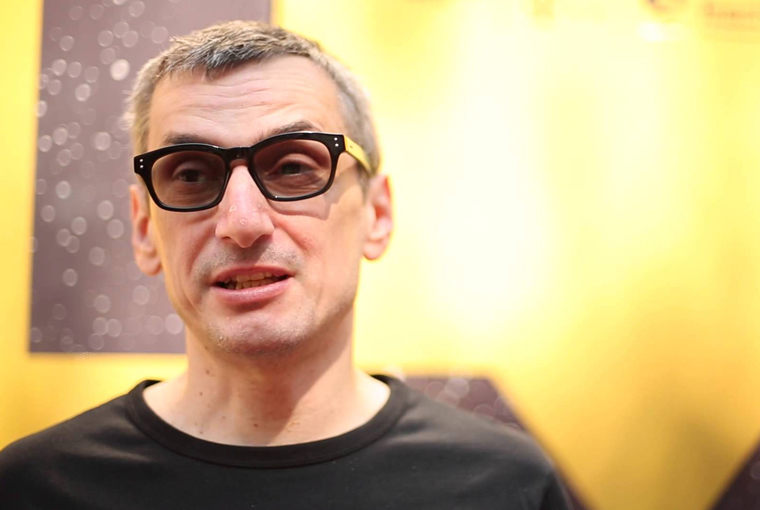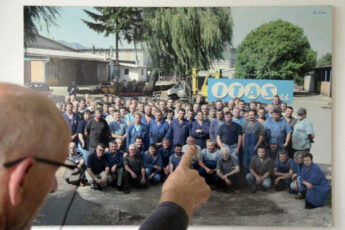
We met Ognjen Sviličić during the “Croatie, la voici” festival in Paris, which opened with his film “Sorry for the Kung Fu”.
Do you think that the problems you discuss in the movie are still relevant today, almost ten years after the release of your film?
No, today, the problems are not related to xenophobia anymore. Croatia became a totally capitalist country. In the movie the problem is the belief of the people. If you take the father, for example, he’s a true believer, even if his beliefs are wrong. If you’re a true believer you can really do something. So in the end of the movie he accepts, from the bottom of his heart, that his ancestor will be Asian. I think today, people in Croatia are no longer willing to accept something from the heart. Today’s Croatia is much worse than before. There is no heart anymore.
Are you skeptical of Croatia’s EU entry?
It’s inevitable. But no, it’s not about losing an identity. I think the only important thing about the European Union is that Germany and France won’t go to war. That’s why the former Yugoslavia was important. You saw what happened when it fell apart. So no, I’m not skeptic, I’m happy that Croatia will become part of the EU. At laest it will stop us from going to war.
Before the screening of you film, you said that you recycled some scenes because there was not enough footage to make a feature film. Later people mistook the lack of material for an aesthetic choice, describing your film as minimalist. Was it a choice or a necessity?
I don’t want to compare myself to great directors, but do you know why Godard used a hand-held camera in Breathless? It wasn’t because they thought it was “good.” It was because there was a law in Paris that made you pay for having a camera on a tripod. Only later did it become a symbol. So yes, I think that many directors work this way, big ones and small ones. You invent new things because you want to avoid spending money.
So it doesn’t have any ideological or historical reason?
Well, I like other movies that inspire me, like Bresson’s work. He developed minimalism much earlier. A very dry minimalism – one shot, and then another – without any comment or additives. It’s like coffee without the sugar. But I think it comes from poverty. It comes from the fact that there is no other way.
Croatian movies of the last decade are very different from Serbian movies. Do you have an explanation for that?
It’s very funny. Most Croatians prefer Serbian films. It’s basically the same language, but Serbian films are more amusing. Everything is big, it’s like Disney Land. I think it’s a question of mentality. Many people from Western Europe think that the Balkans are one thing. But the mentalities are completely different. Croatians are very quiet, dry, easy going and they seem more open. If you go to Belgrade, everything is like “wow!,” and if you go to Zagreb everything is calm and you think that nothing is going on. But what appears on the surface does not always give the right impression. There are many things going on in Zagreb, and sometimes I think that Belgrade is so hectic because there’s nothing going on.
The humor in your film reminded me of Romanian films from the same period. Did you know these films?
I didn’t know that they were doing something similar. It’s funny because when Sorry for the Kung Fu was awarded at the Warsaw Film Festival, Cristi Puiu was part of the jury, and I didn’t know his films at the time. And then my next movies were kind of Romanian. But I don’t think I’m imitating them, since I was doing the same thing at the same time. It kind of happened. But I adore all of their movies, for instance the writing of Razvan Radulescu.
Do you think there was a similar need for these kind of dry, realist movies in Croatia and Romania?
I think we were missing something from European and American movies. If you see French movies from the last few years, for example, you don’t understand why these people are making these movies. They have no reason to tell a story. Maybe it was against this kind of snobbism, against films nobody cares about that these films were created.
Thank you for the interview.




Leave a Comment